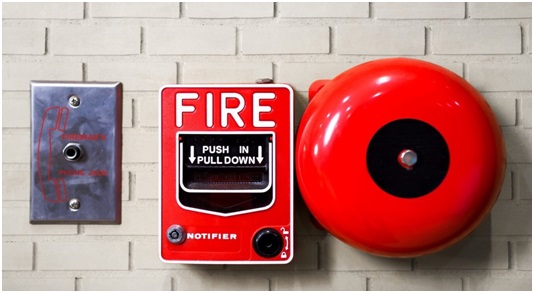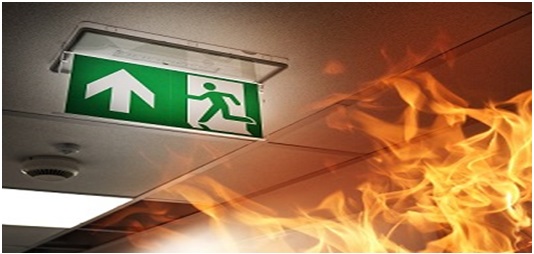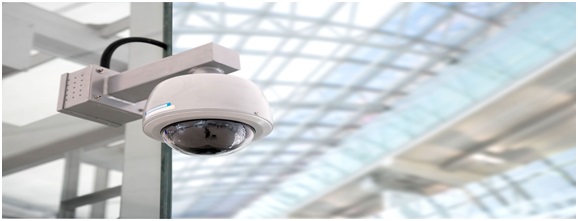Office Safety Handbook: A Comprehensive Guide for Workplace Safety
Office Safety Handbook: A Comprehensive Guide for Workplace Safety
In today’s fast-paced corporate world, ensuring the safety and well-being of employees is paramount. Offices, where individuals spend a significant portion of their day, must be equipped with robust safety measures to mitigate potential hazards effectively. From fire emergencies to ergonomic concerns, each aspect demands meticulous attention to detail and proactive measures. Let’s delve into the various facets of office safety and hazard awareness, backed by pertinent statistics and indispensable safety measures.
Understanding the Risks
According to the National Fire Protection Association (NFPA), between 2014-2018, an estimated annual average of 3,520 office fires were reported in the United States alone, resulting in 29 civilian fatalities and $112 million in property damages. These statistics underscore the critical importance of fire safety protocols in office environments.
NFPA: Fire Loss in the United States
NFPA: Playing with Fire
Slips, Trips, and Falls
The Occupational Safety and Health Administration (OSHA) reports that slips, trips, and falls account for the-majority of general industry accidents, with approximately 25% of reported injury claims each year. Within office settings, uneven flooring, wet surfaces, and poorly maintained walkways pose significant risks to employees.Implementing proper workplace signage, regular maintenance, and employee training programs can help mitigate the risks associated with slips, trips, and falls in office environments. By addressing these hazards proactively, organizations can create a safer workplace and reduce the incidence of injuries among their workforce.

Essential Safety Measures
Installing reliable fire alarm systems is an absolute necessity in any workplace setting. These systems are indispensable, serving as the first line of defense against fire emergencies. With their ability to detect smoke and heat, fire alarms provide early warnings, allowing occupants to evacuate swiftly and safely. By alerting individuals to potential fire hazards, these systems minimize the risk of casualties and injuries. Moreover, prompt activation of fire alarms can significantly reduce property damage by facilitating rapid response from emergency services. In-essence, fire alarms are essential tools for ensuring the safety and well-being of everyone within a workplace environment. Their presence can make a signficant difference in mitigating the impact of fire incidents.

Fire Protection Systems
Fire protection systems, including overhead sprinklers, smoke detectors, and fire extinguishers, are indispensable safeguards against potential fire hazards in office environments. Acting as the primary lines of defense, these systems are designed to detect and combat fires swiftly and effectively. Properly installed and maintained, they play a critical role in suppressing flames and containing the spread of fire within the premises. Overhead sprinklers release water or chemical agents to douse flames, while smoke detectors promptly alert occupants to the presence of smoke, enabling timely evacuation. Additionally, fire extinguishers provide a means to extinguish small fires before they escalate, further enhancing safety measures. In-essence, the efficacy of fire protection systems lies in their ability to mitigate the destructive impact of fires and safeguard lives and property.
Smoke Detectors
Office smoke detectors are vital components of fire safety systems, serving as early warning devices for potential fire hazards. These detectors are strategically placed throughout the office to promptly detect smoke particles, triggering alarms to alert occupants of the danger. Regular maintenance and testing of smoke detectors are crucial to ensure their functionality and reliability during emergencies. Investing in high-quality smoke detectors can significantly enhance workplace safety, providing invaluable time for evacuation and minimizing the risk of fire-related injuries or damages.
Carbon Monoxide Monitors
Carbon monoxide (CO) is a silent yet deadly threat in office environments, as it is odorless and colorless, posing severe health risks to occupants. The incorporation of carbon monoxide monitors is essential to safeguard employees from potential poisoning. These monitors continuously monitor CO levels in the air, providing early detection of any accumulation. By promptly alerting occupants to the presence of this lethal gas, CO monitors enable swift evacuation and intervention, mitigating the risk of poisoning-related injuries or fatalities. Employing CO monitors demonstrates a proactive approach to workplace safety, prioritizing the well-being of employees. Ultimately, these devices play a critical role in maintaining a healthy and safe indoor environment, ensuring peace of mind for all within the workplace.
Emergency Exit Signs
Clear and well-marked and lit emergency exits are essential components of workplace safety protocols. These exits provide crucial pathways for evacuating employees during emergencies such as fires or natural disasters. Regular drills and training sessions are imperative to familiarize employees with evacuation procedures and the locations of emergency exits. Such preparedness ensures a swift and orderly evacuation, minimizing the risk of injuries or confusion during crises. Employers should-maintain-clear signage indicating the direction of emergency exits-and keep-exit routes free from obstruction at-all times. Additionally, conducting periodic evacuation drills helps reinforce the importance of emergency preparedness and ensures that employees are adequately trained to respond effectively in high-stress situations. In-essence, prioritizing the accessibility and visibility of emergency exits is fundamental to enhancing workplace safety and protecting the well-being of all occupants.

Adequate Lighting
Adequate lighting is important in ensuring a safe work environment for employees. Proper illumination plays a critical role in reducing the risk of accidents and enhancing overall visibility within the workplace. Well-lit spaces are particularly important in areas prone to low lighting conditions, such as stairwells and corridors, where visibility may be compromised. Employers should prioritize the installation and maintenance of lighting fixtures to ensure consistent brightness throughout the workspace. Additionally, proper lighting contributes to employee comfort and productivity by reducing eye strain and fatigue associated with poor visibility. Regular inspections and upgrades of lighting systems can help address any deficiencies and uphold optimal safety standards. Ultimately, investing in adequate lighting is a proactive measure that fosters a safer and more conducive work environment for all.
Office Ergonomics
Office ergonomics are integral to preventing musculoskeletal disorders and enhancing employee well-being in the workplace. By incorporating ergonomic principles, such as utilizing ergonomic furniture and adjustable workstations, employers can create a more comfortable and supportive environment for their staff. These ergonomic solutions help employees maintain proper posture and reduce the risk of strain and injury during prolonged periods of desk work. Encouraging regular breaks and movement throughout the day further alleviates the strain on muscles and joints, promoting overall health and productivity. Investing in ergonomic initiatives demonstrates a commitment to employee welfare and can lead to increased job satisfaction and morale. Ultimately, prioritizing ergonomic considerations fosters a healthier and more conducive work environment, benefiting both employees and the organization-as a whole.
Perimeter Fencing
Perimeter fencing serves as an essential security measure in facilities with outdoor areas. By creating a physical barrier, it deters unauthorized access and helps prevent potential intrusions. The presence of perimeter fencing enhances the overall security posture of the premises, providing peace of mind to occupants and stakeholders. Additionally, it helps regulate access control, allowing for better monitoring and management of who enters and exits the facility. Investing in sturdy perimeter fencing is a proactive step towards safeguarding the property and ensuring the safety of its occupants.
Closed-Circuit Television
Closed-circuit television (CCTV) surveillance is a powerful tool that significantly enhances security measures in various settings. By acting as a deterrent, CCTV cameras discourage criminal activity, as potential wrongdoers are aware of being monitored. In the unfortunate event of incidents, CCTV footage serves as valuable evidence for law enforcement and investigation purposes, aiding in identifying perpetrators and resolving disputes. The presence of CCTV systems instills a sense of safety and reassurance among occupants and visitors, contributing to a more secure environment. Investing in CCTV technology is an effective strategy for proactively mitigating security risks and maintaining peace of mind.

Americans with Disabilities Act (ADA)
Compliance with the Americans with Disabilities Act (ADA) is imperative to ensure equal access and accommodation for individuals with disabilities in the workplace. ADA requirements encompass various accommodations, such as wheelchair ramps, accessible restrooms, and designated parking spaces, to facilitate mobility and accessibility for all employees. Adhering to these regulations not only fosters inclusivity but also demonstrates a commitment to diversity and equal opportunity within the organization. By proactively implementing ADA-compliant facilities and practices, employers create an inclusive work environment that promotes the well-being and productivity of all employees, regardless of their abilities. Investing in ADA compliance is not only a legal obligation but also a moral imperative that upholds the principles of fairness and social responsibility.

Good Office House Keeping Practices
Good office housekeeping is essential for maintaining a safe, organized, and productive work environment. Regular cleaning and tidying of workspaces help prevent accidents, reduce clutter, and promote efficiency. Encouraging employees to maintain cleanliness and orderliness in their work areas fosters a sense of pride and professionalism. Proper storage of materials and equipment minimizes tripping hazards and ensures easy access to essential items. By prioritizing good housekeeping practices, offices can enhance employee morale, optimize workflow, and create a positive impression for clients and visitors.

Safety and Health Training for Your Office Workers
Safety and health training for office workers is of immense importance as it equips individuals with the necessary knowledge and skills to identify and mitigate potential hazards in the workplace. By fostering a culture of safety awareness, safety and health training programs empower employees to take proactive measures to prevent accidents and injuries. From fire safety protocols to ergonomic practices, comprehensive training ensures that office workers are well-prepared to handle various situations effectively. Additionally, such training enhances employee morale and productivity by promoting a sense of security and well-being. Ultimately, investing in safety and health training not only protects the workforce but also contributes to the overall success and sustainability of the organization.
In a digital age driven by innovation, online safety and health training emerge as invaluable resources for fostering a culture of safety in the workplace. OSHAccredited Safety Institute, a beacon of excellence in safety and health training, offers comprehensive online safety courses tailored to equip individuals with the knowledge and skills to manage office hazards effectively.
Empower yourself and your team with the expertise needed to safeguard your workplace. Explore OSHAccredited Safety Institute’ Office Safety and Hazard Awareness course today at www.safetyresultpros.com and embark on a journey towards a safer and more secure workplace.
Author: Dr. O’Neil G. Blake, Chief Executive Officer (CEO) of OSHAccredited Safety Institute
MS., MBA., MSc., CSP., ASP., CSHM., CSMP., MRSA.
Date: 03-19-2024










